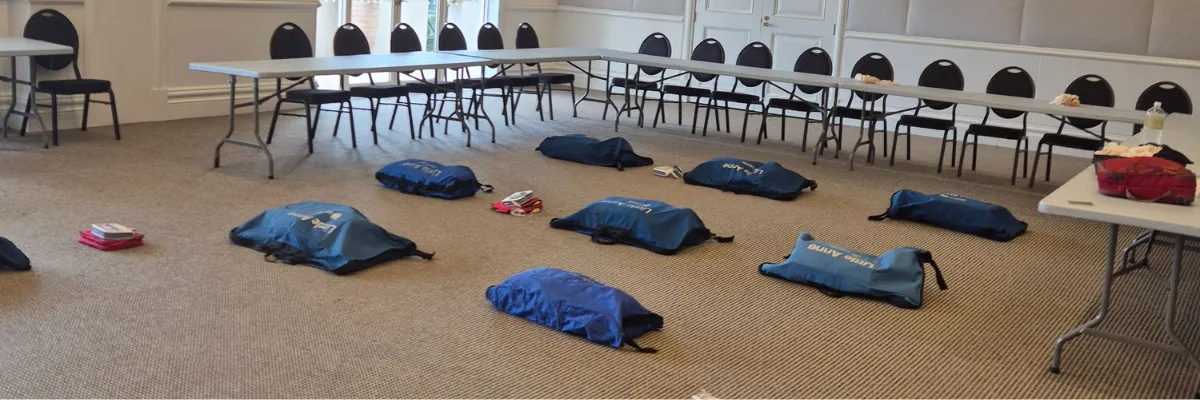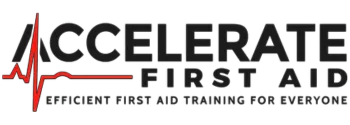
Recognized CPR Course for Healthcare Professionals: Meeting Medical Industry Standards on the Gold Coast
When a cardiac emergency strikes in your healthcare facility, there's no room for uncertainty. Your CPR certification isn't just a workplace requirement—it's the difference between life and death for the patients in your care.
Healthcare professionals across the Gold Coast face a critical challenge: finding CPR training that meets the rigorous standards expected in medical environments. Unlike basic community CPR courses, healthcare workers need certification that covers advanced techniques, medical-grade equipment usage, and protocols specific to clinical settings.
I've seen too many healthcare workers frustrated when they realize their "standard" CPR certificate doesn't meet their employer's requirements. Last month, a nurse at Gold Coast University Hospital told me she had to retake her entire CPR course because her previous certification didn't include the medical-grade components required for her role.
The Australian health industry recognizes HLTAID009 Provide Cardiopulmonary Resuscitation as the gold standard for healthcare CPR certification. This isn't your typical weekend course—it's comprehensive training designed specifically for medical professionals who need skills that integrate seamlessly with hospital protocols and emergency response teams.
In this guide, we'll explore exactly what makes a CPR course "healthcare recognized," where to find medical-standard training on the Gold Coast, and how to ensure your certification meets the stringent requirements of hospitals, clinics, and healthcare employers.
What Makes a CPR Course 'Healthcare Recognized'?
The difference between a standard CPR course and healthcare-recognized training isn't just about the certificate you receive—it's about the depth, context, and clinical application of what you learn.
HLTAID009 vs Community CPR Standards
Most community CPR courses teach the basics: how to recognize cardiac arrest, perform chest compressions, and use an AED. But if you're working in a healthcare setting, you need so much more.
Healthcare-recognized HLTAID009 courses include advanced components that community courses simply don't cover:
Medical equipment integration: You'll learn how to perform CPR while working around ventilators, IV lines, and monitoring equipment
Team-based protocols: Instead of solo CPR scenarios, you'll practice coordinating with other healthcare professionals during resuscitation efforts
Clinical decision-making: Understanding when to modify CPR techniques based on patient conditions, medications, or medical devices
Documentation requirements: Healthcare settings require specific documentation during and after resuscitation efforts
Sarah, an ICU nurse at Robina Hospital, told me her community CPR course left her completely unprepared for her first code blue. "I knew how to do compressions," she said, "but I had no idea how to work around the patient's central line or coordinate with the respiratory therapist managing the airway."
Australian Health Industry Requirements
The Australian health industry doesn't just accept any CPR certification. Healthcare employers look for specific markers that indicate your training meets medical standards:
Accreditation verification: Your training provider must be accredited through nationally recognized training organizations that understand healthcare contexts. This means instructors have clinical experience and understand real-world healthcare scenarios.
Clinical simulation environments: Healthcare-recognized courses use medical-grade mannequins and equipment that mirror what you'll actually encounter in hospitals and clinics.
Instructor qualifications: Look for courses taught by instructors with active healthcare experience—paramedics, nurses, or other medical professionals who understand the clinical context.
The Gold Coast Health District, for example, requires all clinical staff to complete CPR training that specifically addresses medical equipment management and team coordination. Private hospitals like The Gold Coast Private Hospital have similar requirements.

CPR Certification Requirements by Healthcare Role
Not all healthcare professionals need the same level of CPR certification. Your role, responsibilities, and workplace environment determine exactly what type of training you'll need.
Registered Nurses and Midwives
If you're an RN or midwife on the Gold Coast, the Nursing and Midwifery Board of Australia requires current HLTAID009 certification for registration renewal. However, your employer might have additional requirements beyond what NMBA mandates.
Hospital-based nurses typically need:
Full HLTAID009 with healthcare-specific components
Annual refresher training (not just the 3-year renewal)
Advanced life support integration training
Pediatric CPR if working in family or children's services
Lisa, a charge nurse at Gold Coast University Hospital's emergency department, explained: "We need our nurses to understand CPR within the context of our protocols. It's not enough to know the steps—you need to understand how CPR fits into our larger resuscitation team approach."
Allied Health Professionals
Allied health professionals—physiotherapists, occupational therapists, speech pathologists—face varying CPR requirements depending on their practice setting.
High patient contact roles typically need full healthcare-recognized HLTAID009, while lower risk environments might only require standard HLTAID009 certification with basic emergency response protocols.
The tricky part is that your requirements can change if you move between settings. A physiotherapist in private practice might only need basic certification, but hospital work requires the full healthcare-grade training.
Healthcare Assistants and Support Staff
Healthcare assistants often face the most confusion about CPR requirements. Your certification needs depend heavily on your specific duties and workplace policies.
Direct patient care assistants typically need healthcare-recognized HLTAID009 and understanding of basic life support protocols, while support staff with occasional patient contact might require only basic HLTAID009 certification.
One healthcare assistant at Robina Hospital told me: "I thought any CPR course would be fine, but when I started working, I realized I needed to understand how to help during a code blue without getting in the way of the clinical staff. That's not something they teach in community courses."
Medical-Standard CPR Techniques for Healthcare Settings
Healthcare CPR training separates itself from community courses through integration with complex medical equipment, coordination with specialized teams, and split-second clinical decisions.
Advanced Airway Management Integration
In healthcare settings, CPR rarely happens in isolation. You'll often work alongside respiratory therapists or other team members managing advanced airway equipment.
Bag-mask ventilation coordination: Healthcare CPR involves understanding proper timing and pressure when someone else is managing the airway—completely different from basic community training.
Endotracheal tube considerations: Once a patient has an advanced airway, your CPR technique changes significantly. You'll provide continuous chest compressions without pausing for ventilations while working around equipment.
Marcus, a respiratory therapist at The Gold Coast Private Hospital, explained: "Community-trained people often want to stop compressions when we're managing the airway. But in healthcare settings, we need continuous compressions with coordinated ventilation. That's a completely different skill set."
Team-Based Resuscitation Protocols
Healthcare CPR is never a one-person job. You're part of a coordinated team.
Role assignments and rotation: In code blue situations, team members have specific roles—compressions, airway management, medication administration, and team leadership. Healthcare courses teach seamless rotation between roles.
Communication protocols: Effective healthcare CPR requires clear, standardized communication with specific phrases and timing cues.
Dr. Jennifer Walsh, Emergency Department Director at Gold Coast University Hospital, told me: "The biggest difference between healthcare and community CPR is teamwork. In the community, you might be the only trained person. In a hospital, you're one part of a coordinated response."
Medical Equipment Compatibility
Healthcare environments are full of equipment that can complicate CPR efforts.
IV lines and central access: Patients often have multiple IV lines or central catheters. You need to perform effective compressions without dislodging these life-saving connections.
Monitoring equipment: ECG leads, pulse oximeters, and blood pressure cuffs should stay connected during CPR when possible. Your technique must accommodate this equipment.
Defibrillator integration: While community courses teach basic AED use, healthcare CPR involves understanding manual defibrillators and maintaining safety during electrical therapy.
Top Healthcare-Recognized CPR Providers on the Gold Coast
Finding the right CPR training provider can make or break your healthcare career compliance. Not all training organizations understand the specific needs of healthcare professionals.
Hospital-Affiliated Training Centers
Gold Coast Health District Training Services - offers comprehensive HLTAID009 courses specifically designed for healthcare workers. Their instructors are active clinical staff who understand real-world application in medical settings. Training happens in simulated hospital environments using the same equipment you'll encounter on the job.
The Gold Coast Private Hospital Education Centre - provides specialized training for private healthcare workers, focusing on the unique needs of private hospital environments.
Hospital-affiliated training offers immediate recognition. If you're working within these health systems, your CPR certification is automatically accepted.
Accredited Private Healthcare Training Organizations
St John Ambulance Queensland - Gold Coast - has provided healthcare training for decades. Their healthcare-specific HLTAID009 courses include advanced scenarios with instructors who have paramedic or nursing backgrounds.
Australian Red Cross - Gold Coast Training Centre - offers healthcare-focused CPR courses integrated with broader emergency response programs. They're particularly strong in pediatric and aged care applications.
Hearts4Life Training Solutions - specializes exclusively in healthcare CPR and emergency response training, offering on-site training for healthcare facilities.
Private providers offer flexibility with challenging healthcare schedules, including weekend courses and evening sessions.
Provider Evaluation Criteria
When choosing a healthcare CPR provider on the Gold Coast:
Instructor qualifications: Ensure instructors have current healthcare experience, not just training credentials
Equipment quality: Training facilities should use medical-grade mannequins and equipment
Healthcare-specific scenarios: Courses should include hospital codes and clinical emergencies
Recognition by employers: Check with your HR department about preferred providers
Before booking, call the provider and specifically ask about their healthcare focus. A good provider will ask about your role, workplace, and specific requirements.

Making Your Healthcare CPR Certification Decision
Choosing the right healthcare CPR course on the Gold Coast isn't just about compliance—it's about ensuring you have the skills and confidence to respond effectively when lives are on the line.
Sarah from Robina Hospital's ICU put it perfectly: "When a code blue happens, you don't have time to think about what you learned in training. It has to be automatic, and it has to be right."
Key Takeaways for Healthcare Professionals
Start with your employer's requirements: Before booking any course, verify exactly what your workplace needs. Many Gold Coast healthcare facilities have specific requirements beyond basic HLTAID009 certification.
Prioritize clinical relevance: Choose training that mirrors your actual work environment. Community-focused training won't adequately prepare you for healthcare settings.
Consider ongoing skill maintenance: Healthcare CPR skills require regular practice. Look for providers offering refresher courses and continuing education opportunities.
Taking Action on Your Certification
Don't wait until your current certification expires. Healthcare environments demand immediate response capabilities, and your training should be current and relevant when you need it most.
If you're currently working in healthcare and realize your CPR certification doesn't meet the standards outlined in this guide, consider upgrading to healthcare-recognized training before your next renewal period.
Schedule training well before compliance deadlines to avoid last-minute stress. Healthcare-recognized courses often have limited availability due to their specialized nature.
Contact Information for Healthcare CPR Training
For immediate CPR training inquiries: Phone: 0434778243 | 04FIRSTAID
Email: [email protected]
Location: 288 Gooding Dr, Carrara Gold Coast, QLD, 4211
Our team understands the urgent nature of healthcare certification requirements. If you need immediate assistance or have questions about specific course requirements for your healthcare role, don't hesitate to call during business hours.
Remember that your CPR certification represents more than professional compliance—it's your commitment to providing the highest standard of care for patients who depend on your expertise during their most vulnerable moments.
The Gold Coast healthcare community relies on professionals who are properly trained and prepared for emergency situations. By choosing healthcare-recognized CPR training that meets medical industry standards, you're not just protecting your career—you're ensuring you can provide life-saving care when it matters most.


